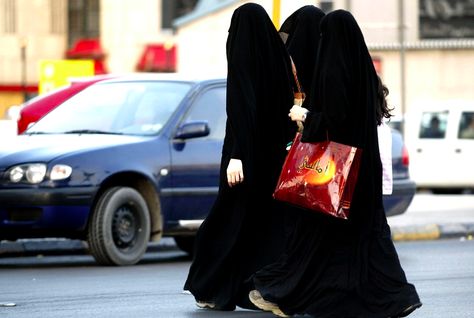Saudi bans female citizens from construction jobs
{jcomments on}
New restrictions aim to ‘protect and ensure the rights’ of women, says labour minister
Saudi Arabia’s Ministry of Labour has banned women from more than 20 industrial, maintenance and construction jobs despite promoting their right to work in the kingdom’s drive towards the ‘Saudisation’ of employment.
Labour minister Adel Fakeih has produced a list of key jobs prohibited to women, typically involving physical labour, in order to clarify the country’s gender expectations in the private sector.
Areas of employment restricted to men and foreign female workers include mining, construction, machine repair or cleaning, the ‘generating, transporting or transforming’ of energy, coal production and metal refinery.
Applying silver to mirrors, melting glass, and anything that involves climbing ladders are among the specific tasks out of womens’ reach.
“These decisions are not meant to change our customs or traditions,” the minister said. “The Saudi woman has every right to work. We are only implementing regulations that will protect her and ensure her rights.”
New restrictions did not apply to foreign women, he added, and it also did not prevent Saudi women from owning companies in the sectors in which they cannot work as employees.
Nadya Khalife, a researcher in the women’s rights division at Human Rights Watch in Beirut added that these restricted added to academic restrictions.
“Women are still banned from certain subjects, or there are situations where they would be restricted later on in that field,” she said this morning. “It’s a really big problem, especially with the Saudi economy looking to grow; you are restricting that potential workforce.
The specifications are the latest detail from the ministry as it seeks to prioritise the employment of citizens in the private sector – the drive towards so-called ‘Saudisation’ of work.
Earlier this year it launched ‘Nitiqat’, a system of assessment that categorised companies operating in the country as ‘red flag’, ‘yellow flag’ or ‘green flag’ depending on the proportion of employees who are Saudi nationals.
Red flag companies – those with the smallest proportion of citizens, with less than three percent of women – have been given until 26 November to address the balance of their Saudi count before the government imposes fines.
‘Yellow flag’ companies will be given until February 2012.
Only women between 20 and 35 years of age will be counted within the Nitaqat quota, and must be registered with the General Organization for Social Insurance (GOSI) and must work full time.
The ban on many areas of industry effectively cuts women out of many positions numerically, despite the drive to promote their employment. More than 21 percent of all jobs in Saudi Arabia are in the industrial sector, according to the CIA World Factbook profile of the country, which include oil, gas, petroleum, plastics, and areas of shipping and aircraft engineering.
The country is also undergoing an industrial revolution to diversify its economy and lock more wealth generation within the kingdom. In recent years the country has grown its facilities to refine oil rather than export crude for other countries to refine.
Despite the strictures on industrial jobs, women seem to be closer to working in lingerie shops, historically staffed by men. The minister added that supply for positions in such shops is likely to outstrip demand, despite the lack of prescribed limits from the central government on working hours.







